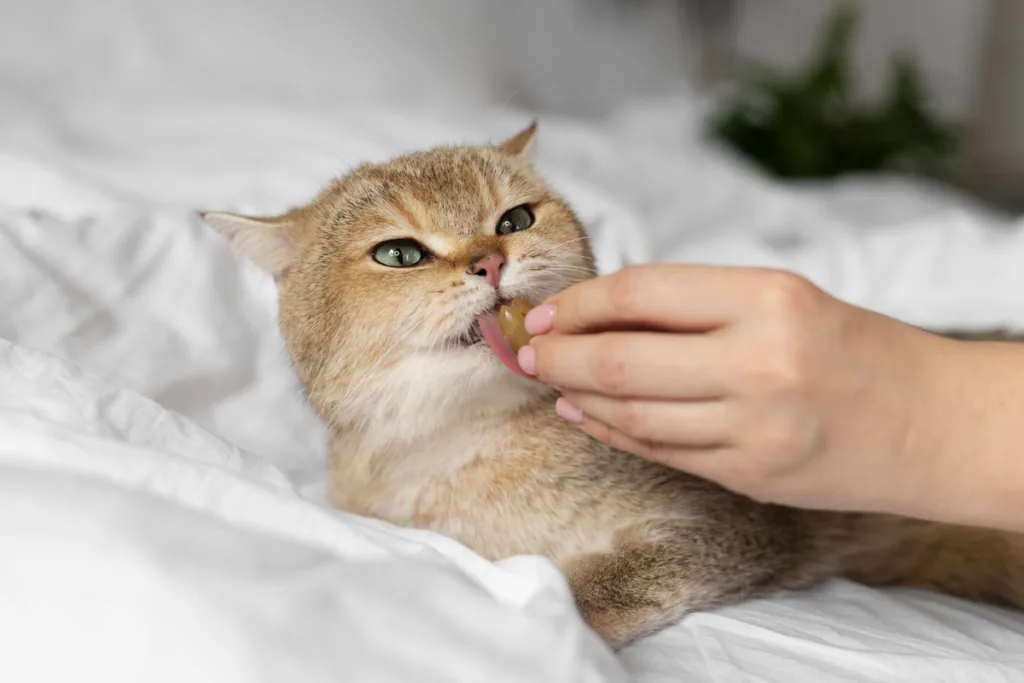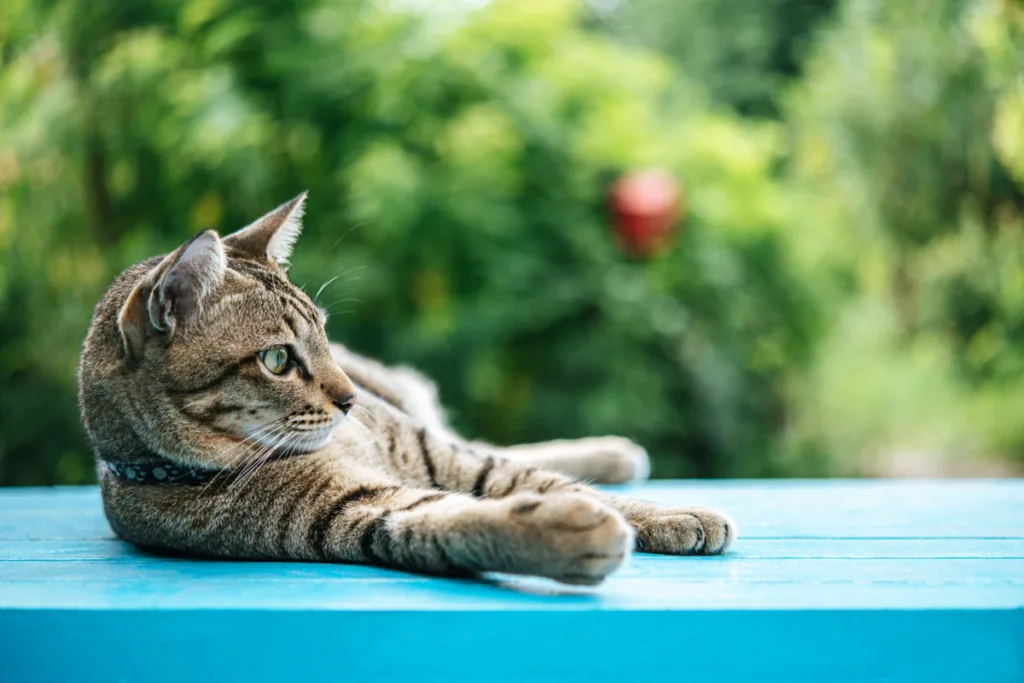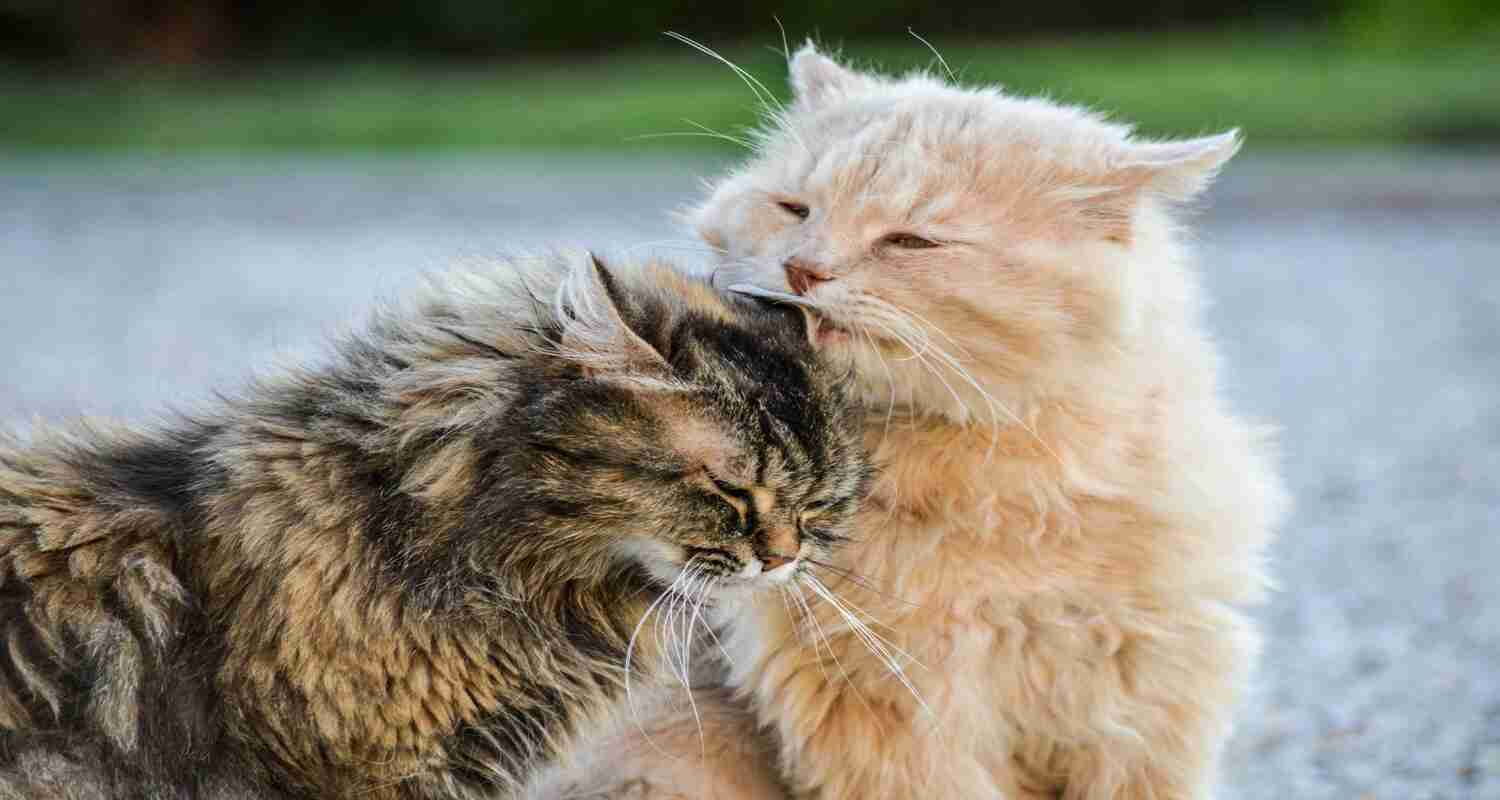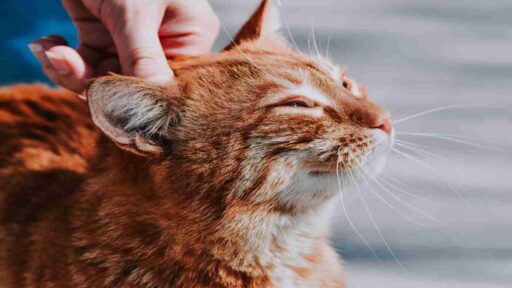How long do cats live? The lifespan of cats is a fascinating aspect of their lives. On average, cats live around 12 to 15 years, but various factors influence how long they can thrive, from genetics to care.
On average, cats typically live between 12 to 15 years. However, this lifespan can vary significantly based on factors such as genetics, breed, lifestyle, and the level of care they receive. Some cats may live into their late teens or even reach their twenties with excellent care and a healthy environment
Factors Affecting Lifespan

Genetics:
A cat’s lifespan can be notably influenced by its breed, genetics, and lineage. Different breeds possess distinct genetic predispositions that can impact their longevity. For instance, certain breeds may be prone to specific health issues that can affect their lifespan. Purebred cats often have more defined genetic traits, including vulnerabilities to certain illnesses or conditions that could potentially shorten their lifespan compared to mixed-breed cats. Additionally, a cat’s lineage, including the health history of its parents and ancestors, can also play a role in determining its overall lifespan. Understanding a cat’s breed and genetic background can offer insights into potential health concerns and help in providing tailored care to promote a longer and healthier life.
Health Care:
Regular veterinary check-ups, vaccinations, and preventive care play a pivotal role in extending a cat’s lifespan.
- Vet check-ups: Routine visits to the vet allow for early detection of potential health issues. Veterinarians can identify and address concerns before they escalate, ensuring timely treatment and maintaining overall health.
- Vaccinations: Vaccines protect cats from various diseases and illnesses that can significantly impact their well-being. By following vaccination schedules recommended by veterinarians, cats can develop immunity against common threats, enhancing their chances of living a longer and healthier life.
- Preventive care: This encompasses practices like dental care, parasite control, and maintaining a balanced diet. Regular dental check-ups and cleanings prevent dental diseases while controlling parasites like fleas and ticks prevents related health complications. A nutritious diet tailored to a cat’s needs supports their immune system and overall health, contributing to a longer and happier life.
Diet and Nutrition:
A balanced diet holds immense significance in extending a cat’s life. It directly influences their overall health and well-being. Here’s why:
- Essential nutrients: Cats require specific nutrients like proteins, vitamins, minerals, and fats to thrive. Therefore, a balanced diet ensures they receive these essential elements in appropriate quantities, supporting healthy growth, strong immunity, and proper organ function
- Weight management: Maintaining an ideal weight is crucial for a cat’s longevity. A well-balanced diet helps regulate their weight, reducing the risk of obesity-related health issues such as diabetes, joint problems, and heart conditions.
- Preventing health issues: Proper nutrition lowers the chances of various health concerns such as urinary tract issues, digestive problems, and skin conditions. It strengthens their defenses against diseases, enabling them to lead longer, healthier lives.
- Quality and variety: Offering high-quality, diverse food options ensures cats receive a range of nutrients, preventing deficiencies and promoting overall vitality. Consulting with a veterinarian to determine the best diet for a cat’s age, breed, and health status is essential for optimizing their lifespan.
In essence, a well-rounded and nutritious diet is a cornerstone in enhancing a cat’s longevity, bolstering their health, and increasing their chances of a longer, happier life.
How Long Do Cats Live? Environment:
The living environment significantly impacts a cat’s lifespan. Here’s how:
- Indoor vs. Outdoor Living: Cats kept indoors generally have longer lifespans compared to outdoor cats. Indoor cats are shielded from dangers such as traffic accidents, predation, and exposure to infectious diseases. They’re also less prone to injuries or conflicts with other animals. Conversely, outdoor cats face various risks that can shorten their lives.
- Stress Levels: High stress levels can adversely affect a cat’s health and longevity. Consequently, changes in their environment, conflicts with other animals, or even household disturbances can cause stress. Chronic stress weakens the immune system, making cats more susceptible to illnesses and reducing their lifespan. Providing a stress-free environment, enriched with activities and hiding spots, can positively impact a cat’s wellbeing and potentially extend their life.
- Safety and Comfort: Ensuring a safe, comfortable, and enriched indoor environment contributes positively to a cat’s longevity. It includes providing mental stimulation, interactive play, comfortable resting areas, and appropriate hiding spots. These elements reduce stress, encourage physical activity, and enhance their overall quality of life.
In conclusion, the living conditions significantly influence a cat’s lifespan. Indoor environments that prioritize safety, comfort, and mental stimulation often lead to longer and healthier lives compared to outdoor or stressful living situations.
How Long Do Cats Live? Common Health Issues
As cats age, they can be prone to various health issues:
- 1. Dental Problems: Dental issues like periodontal disease, gingivitis, and tooth decay are common in aging cats. Consequently, poor dental hygiene can lead to pain, tooth loss, and even systemic health issues if bacteria from the mouth enter the bloodstream.
- 2. Arthritis: Older cats often develop arthritis, a condition causing joint inflammation and stiffness. It can lead to reduced mobility, reluctance to move or jump, and overall discomfort.
- 3. Kidney Disease: Chronic kidney disease is prevalent in senior cats. It affects kidney function, leading to symptoms like increased drinking and urination, weight loss, and lethargy.
- 4. Hyperthyroidism: This condition occurs when the thyroid gland produces excessive hormones. Symptoms include weight loss, increased appetite, hyperactivity, and sometimes heart-related issues.
- 5. Diabetes: Some aging cats develop diabetes mellitus; consequently, this leads to symptoms like increased thirst, frequent urination, weight loss, and changes in appetite
- 6. Cognitive Dysfunction: Just like in humans, aging cats can experience cognitive decline, leading to disorientation, changes in behavior, decreased interaction, and altered sleep patterns.
Regular veterinary check-ups and early detection of these conditions are crucial for managing and mitigating their impact on a cat’s health and lifespan. Consequently, prompt treatment and lifestyle adjustments can often improve their quality of life and extend their years.

Early Detection & Management
Early detection and proper management of health issues in cats can significantly extend their lifespan by allowing timely interventions and effective treatments:
- 1. Timely Treatment: Detecting health issues in their early stages enables veterinarians to provide prompt treatment; consequently, early intervention can often prevent the progression of diseases or manage them more effectively.
- 2. Preventing Complications: Addressing health concerns early helps prevent complications that could arise if conditions are left untreated. For instance, managing dental problems promptly can prevent infections that might spread and affect other organs.
- 3. Improved Quality of Life: Managing chronic conditions such as arthritis, kidney disease, or diabetes can improve a cat’s comfort and overall quality of life. Proper management often involves medication, dietary changes, or lifestyle adjustments that alleviate discomfort and promote better health.
- 4. Slowing Disease Progression: Early detection allows for strategies to slow the progression of certain diseases. For instance, identifying kidney disease early enables dietary changes and treatments that may delay its advancement and maintain kidney function for a longer time.
- 5. Enhanced Monitoring: Regular check-ups for senior cats help monitor their health status more closely. Additionally, veterinarians can adjust treatments or therapies based on the progression of a condition, ensuring the most suitable care for the cat’s evolving needs
By catching health issues in their initial stages and implementing appropriate care, cats can live longer, healthier lives with an improved quality of life. Therefore, regular veterinary visits and staying attentive to any changes in behavior or health are pivotal in achieving this goal.
Longevity Tips and Care
Tips To Ensure A Longer Life
how long do cats live? Here are some tips to ensure a longer and healthier life for your cat:
- 1. Interactive Play: Engage your cat in regular interactive play sessions. This not only provides physical exercise but also mental stimulation, keeping them active and happy. Rotate toys to keep things interesting and encourage their natural hunting instincts.
- 2. Mental Stimulation: Offer mental stimulation through puzzle feeders, treat-dispensing toys, or creating play spaces with hiding spots. As a result, mental engagement helps prevent boredom and can ward off behavioral issues.
- 3. Proper Grooming: Regular grooming is essential. Brushing your cat’s fur helps prevent matting, reduces shedding, and minimizes hairballs. Additionally, it’s an excellent opportunity to check for any unusual lumps, bumps, or skin issues.
- 4. Balanced Diet: Provide a well-balanced and age-appropriate diet tailored to your cat’s needs. Ensure they have access to fresh water at all times. Consult your vet for dietary recommendations based on your cat’s health and age.
- 5. Veterinary Care: Schedule regular check-ups with your veterinarian to monitor your cat’s health. Keep vaccinations and parasite control up-to-date. Early detection of health issues can lead to better treatment outcomes.
- 6. Safe Environment: Create a safe indoor environment by removing hazards, securing windows, and providing scratching posts and perches. This protects them from accidents and reduces stress.
- 7. Love and Attention: Spend quality time with your cat. Bonding and affectionate interactions strengthen your relationship and contribute to their emotional well-being.
Spaying/Neutering
Spaying and neutering play a crucial role in a cat’s overall health and can significantly impact their lifespan:
- 1. Preventing Health Issues: Spaying (for females) and neutering (for males) help prevent certain reproductive-related health problems. For instance, spaying female cats reduces the risk of uterine infections and mammary tumors, while neutering male cats can lower the likelihood of testicular cancer and certain prostate issues.
- 2. Behavioral Benefits: Spaying and neutering can curb certain undesirable behaviors, such as roaming, spraying urine to mark territory, aggression, and yowling during mating seasons. This can lead to a more peaceful and contented cat, reducing stress levels and potential risks associated with outdoor activities.
- 3. Population Control: By spaying/neutering, you contribute to controlling the pet population, preventing unplanned litters that might end up in shelters or facing euthanasia due to overpopulation.
- 4. Longevity and Health: Studies have shown that spayed/neutered cats tend to live longer, healthier lives. They are less susceptible to certain diseases and injuries associated with mating behaviors or reproductive organs.

How Long Do Cats Live? Stories of Long-Lived Cats
There have been some remarkable stories of exceptionally long-lived cats, often attributed to various factors contributing to their longevity.
- Creme Puff: One notable cat, Creme Puff, holds the record for the oldest cat ever recorded. Born in 1967, Creme Puff lived until 2005, reaching the incredible age of 38 years! Her owner attributed her long life to a combination of love, attention, a balanced diet, and regular veterinary care.
- Grandpa Rexs Allen: Another famous cat, Grandpa Rexs Allen, lived to be 34 years old. He was known for his adventurous spirit and received attention for being one of the oldest cats. His owner emphasized a stress-free environment, proper nutrition, and plenty of affection as contributing factors to his longevity.
- Nutmeg: Nutmeg, a cat from England, lived to be around 32 years old. His owner credited his long life to a healthy diet, regular exercise through play, and a loving home environment.
In these cases, factors such as a balanced diet, regular vet check-ups, a stress-free environment, and lots of love and care played pivotal roles in contributing to these cats’ exceptionally long lives. These stories highlight the importance of proper care, attention to health, and a nurturing atmosphere in ensuring cats live longer and healthier lives.
How Long Do Cats Live? FAQs
How Long Does an Indoor Cat Live?
Indoor cats typically live longer than outdoor cats. On average, indoor cats can live between 12 to 20 years or more, depending on various factors like genetics, diet, overall health care, and the quality of their environment. Some indoor cats may even reach their late teens or early twenties with proper care and a safe, stress-free living environment.
Can Cats Live For 20 Years?
Yes, cats can live for 20 years or even longer! While the average lifespan for cats is typically around 12 to 15 years, many cats can exceed this and live into their late teens or even reach their twenties. With excellent care, a healthy lifestyle, regular vet check-ups, and a safe environment, some cats can enjoy a longer and healthier life, surpassing the two-decade mark
How Old is A 13-year-old Cat In Human Years?
The aging process in cats compared to humans isn’t directly proportional, but generally, a common guideline is to consider the first two years of a cat’s life as roughly equivalent to 25 human years each. After that, each additional cat year could be equated to around 4 human years. So, a 13-year-old cat would be approximately equivalent to a human in their mid-60s in terms of aging.
Is 17 Old For A Cat?
Yes, 17 years old is considered quite old for a cat. At this age, many cats are considered seniors and have surpassed the average lifespan for felines. It’s a testament to good care and health management when a cat reaches this age, and they may need extra attention and care to ensure their comfort and well-being in their older years.




